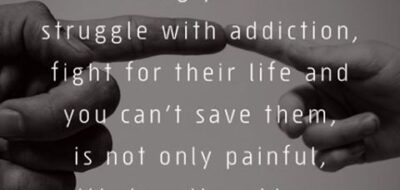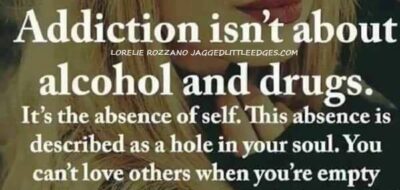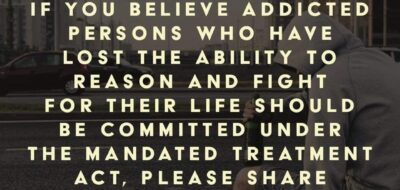When recovering from addiction, either yours or someone you love, it’s important to identify roles. Addiction, like cancer, needs a certain environment to thrive in. Whether it’s genetic, environmental or both, this disease affects all in its path. But no one is more affected than the addicted person’s family.
Long before this illness is identified, roles are played out. In families with addiction, one major role is the caretaker. Care-taking is very different than caregiving. One role is healthy, the other is not.
Caregiving is assisting another person who is ill, disabled, elderly, or needs help with daily activities. It is doing for them, what they can’t do, for themselves. An example of this would be bathing and feeding your baby, or providing medical care for a parent suffering from dementia.
Care-taking is doing for others what they can do for themselves. For example, cleaning your teenager’s room – to avoid an argument – when they are able to clean it themselves, or paying your adult child’s rent, because they lost their job, again.
One way to know the difference between care-taking and caregiving is to pay attention to the way you feel.
Caregiving feels right and loving. It doesn’t leave you second guessing your decisions or feeling anxious about them. It’s an act of free will. Caregivers maintain healthy boundaries and look after themselves. They trust in others abilities, too. A caregiver welcomes help and is open to new ideas and suggestions. They are part of a team made up of professionals, friends, and family. Caregivers speak in first person using “I” statements. Example: I need help.
Care-taking is exhausting and feels stressful. A caretaker will second guess their decisions, and feel resentful about them. They don’t trust in others, abilities. Caretakers believe they know what is best for their addicted loved one and tend to ignore the suggestions of professionals, friends, and family. Caretakers often speak in the second person, using “you” statements. Example: You said you would help me.
Care-taking leads to unhealthy codependent, relationships. Codependency happens when you feel responsible for another person’s emotions, behaviors and/or choices.
A codependent and an addict, fit together like a lock and key.
The codependent feels good when the addict does. If the addict is having a good day, then they are too. But if the addict is having a bad day, the codependent feels anxious and guilty. They will overstep their boundaries and do everything in their power to accommodate the addict’s wishes. This is the key.
The addict needs the codependent to look after them. The addict’s full-time job is trying to get and stay, high. The codependent is crucial to the addict. Without their help, the addict would be forced to face the consequences of their actions. A codependent relationship frees the addict up, to focus solely on their addiction while continuing to use. This is the lock.
The codependent is the ‘go to’ person in the family – the addict seeks help from. This family member is often Mom but can be Dad, or a spouse. They are easily manipulated because they suffer from denial. The codependent (falsely) believes they understand the addict better than the rest of the family. They will protect the addict by keeping their secrets. They make excuses for the addict and violate their moral ethics to stay in the relationship. Codependents believe they can make the addicted person well. But in truth, they cannot.
The codependent and addict have a love-hate, relationship.
Both parties will look to each other, to solve their problems. They may isolate from the rest of the family. Both are acting out in sick ugly behaviors. The care-taker over functions, allowing the addicted individual to under-function. This dynamic creates a crippling, dysfunctional relationship. It keeps the codependent in the role of the martyr and the addicted adult, in the role of the dependent child.
If not intervened upon, the addict and codependent will progress to the terminal stage.
The addict crosses into the terminal stage when they stop caring. They become apathetic and no longer try to get clean and/or sober. The codependent crosses the line when healthy concern, turns to mental-obsession. Their relationship with the addict consumes them.
If you love someone struggling with addiction, the most helpful thing you can do for THEM is to get to support, for YOU.
One on one, addiction wins every time.
To move beyond addiction, you must break free of this deadly relationship. You will need to step outside of your family system, for help. Recovery lives in the open. No more secrets or isolation. Reach out and involve others. Be committed and transparent. Be willing to do whatever it takes. Focus all your attention on you, and the changes you need to make.
Although you can’t make the addict well, you can greatly influence their chances.
Take your power back. No one else is responsible for your well-being. Your happiness rests solely on your shoulders. Don’t spend your whole life waiting for someone else to change. Be the change you wish to see. Addicted persons are most successful when their families are educated and in recovery too.
Lorelie Rozzano
www.jaggedlittleedges.com
If you or someone you know needs help, please call this confidential support line for assistance. 1 888 614-2379.







Elevation Behavioral Health
Really appreciated reading your article. “A codependent and an addict fit together like a lock and key.” How true this is, almost like a square peg adapts and changes to fit into the round hole. One of the hardest things to accept is being reliant on another person– especially an addict to regulate your emotions. Thanks for the great article.